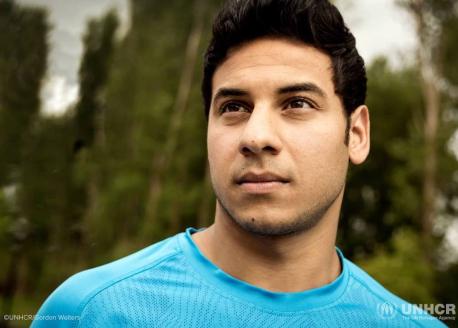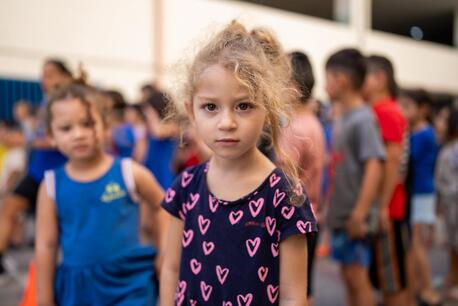
Refugee Olympic Team: Rami Anis's Story
Rami Anis started training as a swimmer when he was 14 in his hometown of Aleppo, Syria. He credits his Uncle Majad, who swam competitively, with instilling a passion for competing in the water. “Swimming is my life,” Rami says. “The swimming pool is my home.”
But as bombings and kidnappings in Aleppo grew more frequent, Rami's family put him on a flight to Istanbul. There he lived with an older brother. A period of refuge he thought would last months turned into years. He had resumed his swimming, but lack of Turkish citizenship barred him from competing there. So Rami set off to try his chances in Europe. He rode an inflatable dinghy to the Greek island of Samos. After crossing numerous borders, he finally reached the Belgian town of Ghent. The perilous journey only fueled his resolve; he immediately began training for the Rio Olympics.
Rami believes that the team's inclusion in the Games will signal to the world that despite their upheaval, refugees can still lead a normal life in their host countries. "I want to show the best possible image of refugees or Syrian people, or anyone who has suffered injustice in the world, and tell them to not lose hope."
Watch Rami's story here:
The Refugee Olympic Team represents the key crisis of our time: that of refugees and the displaced. At a time when more than 65 million people are displaced, many of them children, the participation of the team in Rio sends a powerful signal of hope to refugees around the world. Further, the team aims to promote unity among refugees of various backgrounds and overcome divisions with host communities.
According to a new report by the UN Refugee Agency, on average 24 people were forced to flee each minute in 2015 — four times more than a decade earlier. Shockingly, children made up about half of the refugee population in 2015, up from 41 per cent in 2009. In the first six months of 2016 alone, 73,000 children arrived in Europe by way of a sea crossing that has been deadly for too many. Nearly 100,000 child refugees were separated from their parents or traveled alone. And for a growing number, there is nowhere to go.
Read the story of Yusra Mardini, another Team Refugees athlete at the Rio Olympics.
Read the story of Yiech Pur Biel, another Team Refugees athlete at the Rio Olympics.
Learn more about the Refugee Olympic Team here.
HOW TO HELP
There are many ways to make a difference
War, famine, poverty, natural disasters — threats to the world's children keep coming. But UNICEF won't stop working to keep children healthy and safe.
UNICEF works in over 190 countries and territories — more places than any other children's organization. UNICEF has the world's largest humanitarian warehouse and, when disaster strikes, can get supplies almost anywhere within 72 hours. Constantly innovating, always advocating for a better world for children, UNICEF works to ensure that every child can grow up healthy, educated, protected and respected.
Would you like to help give all children the opportunity to reach their full potential? There are many ways to get involved.





